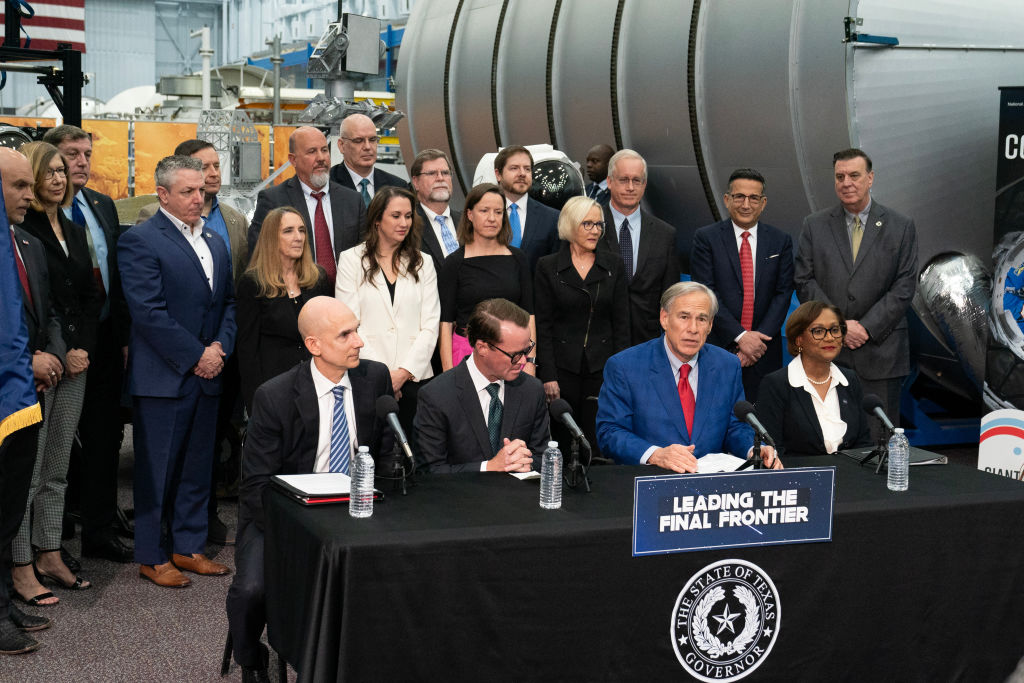In the brave new world of artificial intelligence, the newly formed Artificial Intelligence Advisory Council is uncovering innovative ways Texas state agencies are leveraging advanced computing to enhance efficiency. Established by the Legislature during last year’s session to explore the role of AI in government, the council has been active for less than a month but has already produced noteworthy findings, stirring excitement among stakeholders.
Last month, Governor Greg Abbott, Lieutenant Governor Dan Patrick, and House Speaker Dade Phelan appointed members to the council, which promptly began its mission to identify potential legislative avenues.
On Thursday, the council’s co-chairs, state Sen. Tan Parker, R-Flower Mound, and state Rep. Giovanni Capriglione, R-Southlake, participated in a panel at the Texas Public Policy Foundation’s Policy Summit. They addressed the future of AI in state government just hours after the advisory council held its first substantive meeting.

Definitions and Scope of Automated Decision Systems
Understanding what constitutes an automated decision system (ADS) is crucial. Texas Government Code Section 2054.621(3) defines an ADS as “an algorithm, including an algorithm incorporating machine learning or other artificial intelligence techniques, that uses data-based analytics to make or support governmental decisions, judgments, or conclusions.”
Furthermore, Section 2054.621(5) defines an “automated support decision system” as an ADS that provides information to inform the final decision, judgment, or conclusion of a human decision-maker.
Sometimes technology is used in the process of developing or supporting the system but does not make or support governmental decisions, judgments, or conclusions. LINK to examples
Legislative Initiatives and Discussions
The Texas Public Policy Foundation, a highly influential conservative think tank based in Austin, recently announced AI as one of its top legislative priorities for 2025. While specific policy details were initially sparse, Thursday’s panelists suggested that concrete ideas are emerging.
“They’re probably no less than seven to eight, at least — maybe 10, or more — bill ideas that came out of the conversation this morning already,” Sen. Parker noted.
Rep. Capriglione suggested the number could reach a dozen bills.
“We heard from one agency that is already using AI in their back-end processing for invoices,” he said. “They’ve reduced the time from two to three weeks to just 13 seconds. It’s more accurate. It’s faster.”
Testimonies and Agency Approaches to AI
The advisory council’s three-hour session on Thursday morning featured testimonies from several key state agencies, including the Department of Information Resources (DIR), the Department of Transportation, the Workforce Commission, and the Teacher Retirement System. DIR privacy attorney Jennie Hoelscher highlighted the varied approaches state agencies are taking towards AI, including the use of “generative AI” tools like ChatGPT and Microsoft Copilot.
“There are some agencies that have very restrictive rules about the use of AI within their agencies,” Hoelscher said. “There are other agencies that are very open to employees using generative AI in particular, so there is a broad spectrum.”
John Hoffman, DIR’s chief technology officer and the deputy chief information officer for Texas, emphasized that AI is being used to increase efficiency and productivity. While chatbots are a common application, the scope is much broader.
“The resources are limited. The requirements are high. It’s ‘how are we using AI to best provide that,’” Hoffman explained to the council.
Conclusion
The Artificial Intelligence Advisory Council’s early findings underscore the transformative potential of AI in Texas state government. With discussions already hinting at multiple legislative proposals, the council’s work could significantly influence how AI is integrated into public sector operations, enhancing efficiency and accuracy. As agencies continue to explore and implement AI solutions, Texas stands at the forefront of leveraging advanced technology for better governance.






